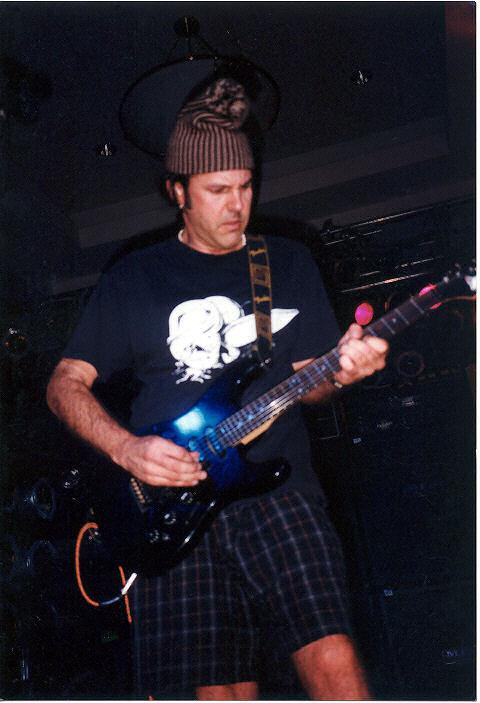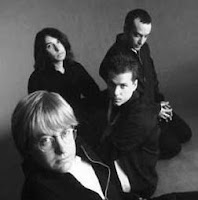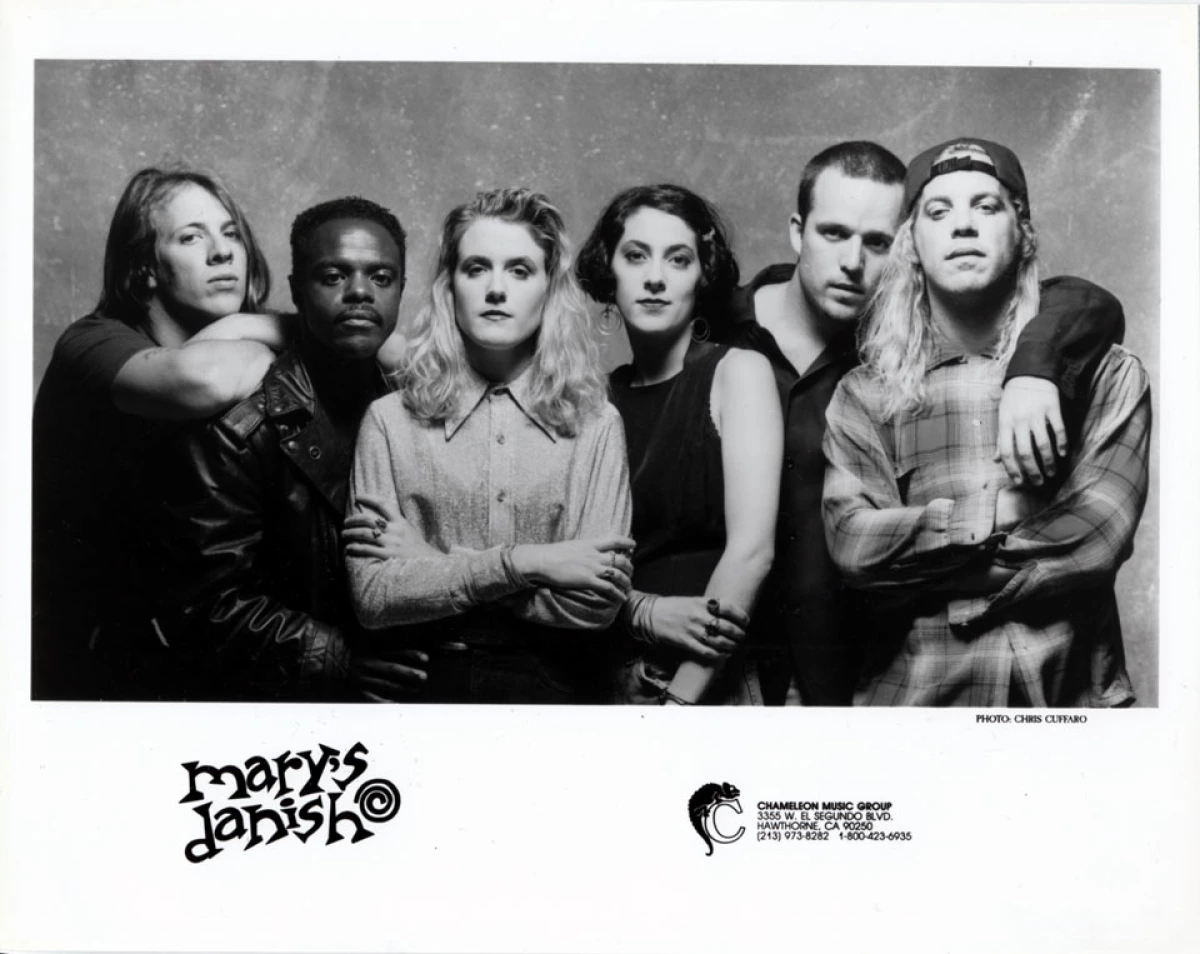I Will Not Take These Things for Granted: A Chat with Glen Phillips (Toad the Wet Sprocket)
Discography:
Bread and Circus (Abe’s, 1988)
Pale
(Abe’s/Columbia, 1990)
fear
(Columbia, 1991)
Dulcinea
(Columbia, 1994)
In
Light Syrup (Columbia, 1995)
Coil
(Columbia, 1997)
New Constellation (Abe’s, 2013)
Popular Tracks: All I Want, Come Down, Something’s Always Wrong, Walk on the Ocean, Fall Down, Good Intentions, One Little Girl
Toad the Wet Sprocket were a bit different in the alternative rock landscape. Not really heavy, but not light enough to be considered easy listening, they still made their name known with some quirky pop songs that still sound great all these years later. They kind of got slagged a bit back in the day for the weird name and a lighter sound but they became one of my favorites and the music still holds up all these years later. Sometime back around 2015, frontman Glen Phillips answered a few questions about the band's career. While you're at it, check out his solo material.
Pete Crigler: When did you become interested in music?
Glen Phillips: I always loved music. I was a secret disco dancer in the afternoons when I would get home from school as a kid in the seventies. After I got caught dancing I switched to metal and punk because it felt a little tougher and safer. My brother was a drummer and keyboardist and I idolized him, so I started playing guitar in 6th grade. It just kind of went from there.
Pete:
How did Toad come together and what was the scene in Santa Barbara like?
Glen: We were all in high school theater and choir together. Todd lived a few blocks from me and I mooched a lot of rides home from him. He turned me on to REM, Dinosaur Jr, the Replacements and Hüsker Dü. Pretty soon we were writing songs together. Santa Barbara is a small enough town that people mashed up genres. We would play shows with punk, goth and glam bands. Everyone got along well and supported each other. It was a great scene.
Pete: When did you decide on the name?
Glen: We took the name from a Monty Python skit as a joke, just to see it in print and laugh out loud. We planned on coming up with a real name but never did. The joke may have gone a little too far.
Pete: What was it like developing your sound?
Glen: Didn’t think much about it. We just played what we wrote. I think our mutual limitations and strengths just set the sound automatically.
Pete: What was it like making Bread and
Circus?
Glen:
Quick. We recorded it live in a tract home to 16 tracks on 2” tape. I think the
only overdubs were background vocals and a keyboard. It took 48 hours to record
and mix and cost $600.
Pete: When did you sign with Columbia and how do you feel about it now?
Glen: We signed with them in 1989 and got them to release our first two albums untouched. We were really lucky to sign at that time. Labels were doing well and we were able to ask for a lot of independence and given time to mature at our own pace, which wouldn’t have happened in any other era.
Pete: What was success like and how did everyone react to it?
Glen: Success was weird. I’ve always thought the celebrity machine was a lie, and being in the middle of it for half a minute didn’t change that point of view. In retrospect it would have been nice to enjoy it a little more, but I’m also glad I didn’t let it define me. I knew who my friends and community were, and always had people who loved me and were willing to put me in my place if I got out of line.
Pete: What were the inspirations for songs like Fall Down, All I Want, Walk on
the Ocean and Something’s Always Wrong?
Glen: For now let’s have them be mysteries.
Pete: Was there any pressure going into making Dulcinea?
Glen: Not really. We kept the budget low so we wouldn’t have pressure from the company and our A&R guy protected us from commercial pressures. We were really lucky and just got to make the record we wanted to make.
Pete: What was it like working with Van Dyke Parks on Coil?
Glen: It was awesome :).
Pete: Was it a conscious effort to change the band’s sound a bit on Coil?
Glen: We were always growing and changing, so I think there’s a natural progression there. The big sonic shift was having the mix done by Tom Lord Alge instead of Gavin MacKillop, who produced, engineered and mixed Fear and Dulcinea.
Pete: What prompted the band’s breakup?
Glen: The spark was gone. We were trying to make a new album and found we’d lost our mutual drive. It had become a job instead of a passion, so we moved on.
Pete: What was it like starting your solo career?
Glen:
Difficult. I couldn’t get a record deal. I got really depressed. Had to face my
entitlement and lack of gratitude, and it wasn’t pretty. Found some good allies
though, and picked myself up and started over.
Pete: Did everyone keep in touch during the break?
Glen: A little. Todd, Dean and Randy played together in Todd’s band Lapdog for a while. Dean and Todd did a lot of writing together.
Pete: What prompted the reunion?
Glen: Adam Duritz asked us to open a few shows for Counting Crows. We managed to say yes and try playing together again.
Pete: How was it recording New
Constellation and funding it through Kickstarter?
Glen: It was a lot of work but really rewarding. I’m glad we had another album in us.
Pete: What are you guys currently up to?
Glen: Summer touring with another little round coming up in the fall (2015). We have a song coming out on a Roger Miller tribute album and a song in the upcoming film “Animal Crackers.” (Editor's note: The film was finally released on Netflix in 2020.) Everyone is working on other projects for most of the year, but we love coming together for Toad season.
Pete: What was it like reissuing the earlier records?
Glen: It was good to get them out there again. Strange to hear them - I was 16 and 17 when we made those albums. It’s strange to have a public record of where my head was at when I was that young.
Pete: What do you think of the impact of alternative rock in the ‘90s?
Glen: There was some great music in that era, same as any other. It was a weird time because people were signing on to major record labels and also fighting to keep their indie cred, so there was a lot of awkward posturing and self-sabotage. Aside from that - some beautiful songs happened then.
Pete: What do you hope Toad’s musical legacy will be?
Glen: That's for journalists like you to decide. Be gentle.






Comments
Post a Comment